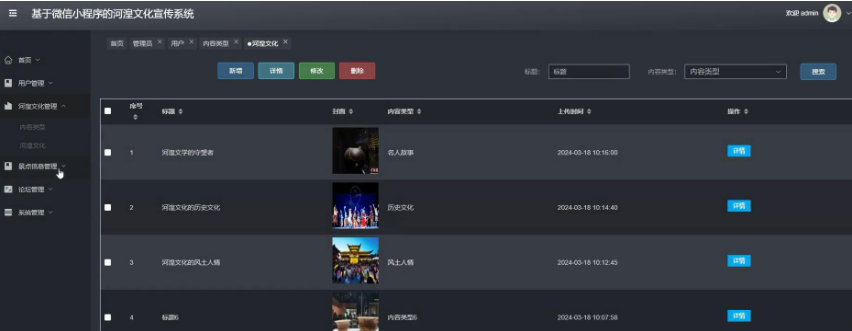- 如何解决 NPM proxy, 当我们在终端nodejs应用程序时出现代理相关报错
Thisisaproblemrelatedtonetworkconnectivity.npmERR!networkInmostcasesyouarebehindaproxyorhavebadnetworksettings.在使用npminstall下载包的时候总是报以下错误:在控制台或VisualStudioCode终端中运行以下命令:npmconfigrmproxynpmconfigrmhttp
- react-native android 环境搭建
环境:macjava版本:Java11最重要:一定要一定要一定要react涉及到很多的依赖下载,gradle和react相关的,第一次安装环境时有外网环境会快速很多。安装nodejs安装react-nativenpminstallreact-native-clinpminstallreact-native创建一个新项目react-nativeinitfirstReact替换gradle下载源rep
- Ubuntu基础(Python虚拟环境和Vue)
aaiier
ubuntupythonlinux
Python虚拟环境sudoaptinstallpython3python3-venv进入项目目录cdXXX创建虚拟环境python3-mvenvvenv激活虚拟环境sourcevenv/bin/activate退出虚拟环境deactivateVue安装Node.js和npm#安装Node.js和npm(Ubuntu默认仓库可能版本较旧,适合入门)sudoaptinstallnodejsnpm#验
- NodeJS VM2沙箱逃逸漏洞分析【CVE-2023-29199】
R3s3arcm
NodeJS漏洞分析node.js安全安全威胁分析
NodeJSVM2沙箱逃逸漏洞分析【CVE-2023-29199】简介Node.js是一个基于V8引擎的开源、跨平台的JavaScript运行环境,它可以在多个操作系统上运行,包括Windows、macOS和Linux等。Node.js提供了一个运行在服务器端的JavaScript环境,使得开发者可以编写并发的、高效的服务器端应用程序。Node.js使用事件驱动、非阻塞I/O模型来支持并发运行。它
- node.js、npm是什么?服务器脚本语言有哪些?
文章目录1.node和nodejs有区别吗:2.Node.js是什么3.NPM4.安装Node.js和npm5.使用appium之前为什么安装node.js?6.Vue.js一定要安装node.js吗?7.开发环境:1.node和nodejs有区别吗:node和nodejs之间没有区别,node全称就是nodejs。nodejs是一个基于ChromeV8引擎的JavaScript运行环境,一个让J
- CentOS7安装nvm与node
在我们的日常开发中经常会遇到这种情况:手上有好几个项目,每个项目的需求不同,进而不同项目必须依赖不同版的NodeJS运行环境。如果没有一个合适的工具,这个问题将非常棘手。由此nvm应运而生。nvm是一个node管理工具。使用nvmNode版本管理器安装Node.JS。nvm允许您在同一台计算机上安装多个Node.JS版本。并且自由切换node版本。1.安装安装指令,这个是一键式的,这个如果执行成功
- 【亲测免费】 如何构建适用于Android的Node.js:从零到实践
陈宜旎Dean
如何构建适用于Android的Node.js:从零到实践build-nodejs-for-androidBuildnodejsforandroid(arm,arm64,x86,x64,mipsel)perfectlyandprovideprebuiltbinaries,andadockerimageasworkbench.项目地址:https://gitcode.com/gh_mirrors/bu
- android nodejs
cike110120
本文参照了http://www.blogjava.net/jelver/articles/143082.html,http://www.blogjava.net/athrunwang/archive/2011/09/28/359680.html,《androidSDK开发范例大全(第2版)》上次做了一个demo,试验如何用node.js响应getpost请求,http请求使用的浏览器。我现在正在学
- java组件化设计_构建之路—谈谈组件化后端构建和实现
前言这一篇文章,准备了很久,构思了很久,草稿了很久。从个人编程至今,历经了C,C++,Java,到现如今的NodeJS。也后端到前端,再回到后端。更从学校里的学生信息管理系统到大型商业系统构建,是的,我曾一直以为编程也就是如此了,由瀑布模型,敏捷开发,设计模式等等组成的软件工程大致就是如此了。相信可能很多人也会有和我类似的想法,是否也都曾迷茫过?幸运的是,伴随着对前端的接触和深入,云雾散开。前端组
- jenkins 自动化部署之后,不允许在工具上查看源代码
小疯仔
jenkins自动化运维
先来展示一下最终的效果在没有如何操作之前的时候,这个Jenkins部署完成之后会在工具上留有源代码,能点击进去,部署到甲方的服务器上的时候会被看到,这样就会造成源码泄露解决方案可以在Jenkinsfile文件中加入以下代码pipeline{agentanytools{nodejs'nodejs16.20.2'}//步骤stages{}//新增post阶段:在流水线结束后清理工作区post{alwa
- 使用CocoaPods做依赖管理(淘宝源更换为HTTPS)--转自 唐巧技术博客
q364385155
cocopods依赖管理OCiOS
CocoaPods简介每种语言发展到一个阶段,就会出现相应的依赖管理工具,例如Java语言的Maven,nodejs的npm。随着iOS开发者的增多,业界也出现了为iOS程序提供依赖管理的工具,它的名字叫做:CocoaPods。CocoaPods项目的源码在Github上管理。该项目开始于2011年8月12日,经过多年发展,现在已经成为iOS开发事实上的依赖管理标准工具。开发iOS项目不可避免地要
- iOS CocoaPods(依赖管理)安装和使用教程
Andyjicw
iOS移动开发cocoapodsios开发教程依赖
参考资料CocoaPods简介每种语言发展到一个阶段,就会出现相应的依赖管理工具,例如Java语言的Maven,nodejs的npm。随着iOS开发者的增多,业界也出现了为iOS程序提供依赖管理的工具,它的名字叫做:CocoaPods。CocoaPods项目的源码在Github上管理。该项目开始于2011年8月12日,经过多年发展,现在已经成为iOS开发事实上的依赖管理标准工具。开发iOS项目不可
- NodeJS全栈WEB3面试题——P1基础知识:区块链与Web3原理
穗余
Web3web3区块链
1.1区块链的基本组成有哪些部分?它们的作用是什么?区块链主要由以下几个部分组成:区块(Block):区块是数据的基本存储单元,每个区块包含一批交易记录和一些元数据(如时间戳、前一个区块的哈希等)。链(Chain):区块通过哈希指针连接形成链条,保证数据的不可篡改性。节点(Node):参与网络的计算机,每个节点维护区块链的完整或部分副本。共识机制(ConsensusMechanism):用于节点间
- 250706-在局域网中搭建 SvelteKit 项目并允许其他设备访问
GuokLiu
WebLinuxNPMSvelte
本文记录了如何从零开始创建一个SvelteKit项目,并配置使得局域网内的其它设备可以访问开发服务器(如用于移动设备调试)。一、准备开发环境1.安装Node.js和npmSvelte项目依赖Node.js(建议版本≥16)。#macOS安装方式brewinstallnode#或者官网下载:https://nodejs.org/验证是否安装成功:node-vnpm-v二、创建SvelteKit项目S
- 【vue】用conda配置nodejs,一键开通模版使用权
温择之
conda
特此鸣谢我的好同学@重中之重的特级教学,非常之好用一、conda环境下载安装二、创建包含nodejs的conda环境创建一个新环境:condacreate-n【自定义环境名字】python=3.9condacreate-nmy_nodejs_envpython=3.9激活新环境:condaactivate【环境名字】condaactivatemy_nodejs_env下载安装nodejs:cond
- (部署服务器系列四)部署Vue步骤(使用nodejs)
玄尺_007
#个人博客项目#前端服务器vue.js运维
1.构建项目(打包Vue):构建前设置main.js//关闭开发模式提示Vue.config.devtools=falseVue.config.productionTip=false设置指向的服务端后端ip和端口,我的常量属性统一放在了constants.jsexportconstAIOS_BASE_URL="http://192.168.0.111/api"exportconstIMG_BASE
- vue项目中使用nodejs实现登录
芜湖湖湖湖
nodejsvuemysqljavascript
用vue,nodejs,mysql做的一个登录的页面代码放完的话有点麻烦,只放实现功能的代码把。vue部分:exportdefault{data(){return{loginForm:{username:'',password:'',},//下面两行是vuelogo的不用理会circleUrl:require('../assets/logo.png'),size:100}},methods:{su
- python+uniapp基于微信小程序的宿舍报修系统java+nodejs+php
QQ1963288475
pythonuni-app微信小程序djangoflaskspringbootjava
文章目录具体实现截图本项目支持的技术路线源码获取详细视频演示:文章底部获取博主联系方式!!!!本系统开发思路进度安排及各阶段主要任务java类核心代码部分展示主要参考文献:源码获取/详细视频演示##项目介绍绪论在高校宿舍管理中,设施报修是一个重要的环节。传统的报修方式通常需要学生前往宿管办公室填写报修单,或者通过电话、短信等方式进行报修,这种方式存在诸多不便,如报修流程繁琐、信息沟通不畅等问题。而
- python+uniapp基于微信小程序的餐饮点单系统java+nodejs+php
文章目录具体实现截图本项目支持的技术路线源码获取详细视频演示:文章底部获取博主联系方式!!!!本系统开发思路进度安排及各阶段主要任务java类核心代码部分展示主要参考文献:源码获取/详细视频演示##项目介绍绪论在餐饮行业中,传统的点单方式往往依赖于纸质菜单或人工服务,这种方式不仅效率低下,而且难以满足现代消费者对于便捷、快速服务的需求。随着移动互联网技术的普及,越来越多的餐饮企业开始探索数字化点单
- nvm:NodeJs版本管理工具下载安装与使用教程
天天打码
大前端javascriptnode.jsvue.js
nvm是什么nvm是一个node的版本管理工具,可以简单操作node版本的切换、安装、查看。。。等等,与npm不同的是,npm是依赖包的管理工具。nvm特点node:是一个基于ChromeV8引擎的JS运行环境。npm:是node.js默认的包管理系统(用JavaScript编写的),在安装的node的时候,npm也会跟着一起安装,管理node中的第三方插件。nvm:node版本管理器,也就是说:
- 【学习】搭建个人Hexo博客网站
程序员
一、准备环境1、安装node访问Node.js官网:https://nodejs.org/下载LTS(长期支持版本)安装时保持默认选项即可安装完成后,打开命令提示符验证安装:node-v2、安装npmnpm已包含在Node.js安装包中,安装Node.js时会自动安装打开命令提示符验证安装:npm-v更新npm到最新版本(可选):npminstall-gnpm3、安装hexo打开命令提示符,以管理
- 【计算机毕业设计】基于Springboot的办公用品管理系统+LW
枫叶学长(专业接毕设)
Java毕业设计实战案例课程设计springboot后端
博主介绍:✌全网粉丝3W+,csdn特邀作者、CSDN新星计划导师、Java领域优质创作者,掘金/华为云/阿里云/InfoQ等平台优质作者、专注于Java技术领域和学生毕业项目实战,高校老师/讲师/同行前辈交流✌技术范围:SpringBoot、Vue、SSM、HLMT、Jsp、PHP、Nodejs、Python、爬虫、数据可视化、小程序、安卓app、大数据、物联网、机器学习等设计与开发。主要内容:
- WebSocket协议探究(二)
weixin_30662539
网络nettyjavascriptViewUI
一复习和目标1复习协议概述:WebSocket内置消息定界并且全双工通信WebSocket使用HTTP进行协议协商,协商成功使用TCP连接进行传输数据WebScoket数据格式支持二进制和文本初始握手和计算响应键值消息格式关闭握手2目标Nodejs实现WebSocket服务器Netty实现WebSocket服务器Jsapi实现WebSocket客户端二Nodejs实现WebScoket服务器1概述
- python+springboot+nodejs+uniapp基于微信小程序外卖系统
QQ_1963288475
pythonspringbootuni-appdjangoflasknode.js微信小程序
文章目录具体实现截图本项目支持的技术路线源码获取详细视频演示:文章底部获取博主联系方式!!!!本系统开发思路进度安排及各阶段主要任务java类核心代码部分展示主要参考文献:源码获取/详细视频演示##项目介绍随着移动互联网的迅猛发展,微信小程序凭借其无需下载安装、即用即走的特点,成为众多应用开发的首选平台。本文设计并实现了一款基于微信小程序的外卖网站,旨在为用户提供便捷的点餐服务,同时为餐厅提供高效
- Windows下nodejs npm版本降级
柴华松
网站开发windowspythonnode.js
最近在npminstall的时候遇到一个奇怪的错误,找了很久都没找到原因,错误是:npmERR!code1npmERR!pathD:\htz\web\htz_web_app\node_modules\node-sassnpmERR!commandfailednpmERR!commandC:\WINDOWS\system32\cmd.exe/d/s/cnode-gyprebuildnpmERR!gy
- 25.06.3日报:nodejs为什么这么大
龙泉寺扫地僧
前端javascript开发语言
最近我的mini-electron加上nodejs后,徒然增大了16M左右,很诧异。因为nodejs本身的c++代码应该就2M,再加那些js也就1M,怎么会增大这么多。经过毛利大师推荐的sizebench查看pdb后,发现原来是nodejs现在自带了一个名为Amaro的ts解析器,居然是个5M的wasm文件。考虑到electron模式基本不会用到ts的解析器,这块可以砍了。
- electron主进程的nodejs消息循环是如何驱动的
龙泉寺扫地僧
electronjavascript前端
很简单,有个NodeBindings::EmbedThreadRunner的函数,是在主进程的工作线程运行。这个函数会监听uv_loop_->iocp有没事件,如果有的话,就发消息给主线程,让主线程调用NodeBindings::UvRunOnce,里面就是调用libuv,然后驱动nodejs。那如果nodejs是开了定时器呢?在监听uv_loop_->iocp的时候会有个超时,超时的时间就是定时
- 【本科计算机毕业设计选题】毕业设计选题汇总100套易过的精品毕设项目分享(建议收藏)✅
会写代码的羊
毕设选题课程设计专科毕设毕业设计计算机网络毕设题目毕设选题计算机外设
文章目录前言最新毕设选题(建议收藏起来)SpringBoot+Vue毕业设计选题汇总100套易过的精品毕设项目分享毕设作品推荐文未可免费咨询毕设相关问题,点赞留言可送系统源码前言2025全新毕业设计项目博主介绍:✌全网粉丝10W+,CSDN全栈领域优质创作者,博客之星、掘金/华为云/阿里云等平台优质作者。技术范围:SpringBoot、Vue、SSM、HLMT、Jsp、PHP、Nodejs、Pyt
- python+uniapp基于微信小程序的河湟文化宣传系统nodejs+java
文章目录具体实现截图本项目源码获取详细视频演示:文章底部获取博主联系方式!!!!本系统开发思路进度安排及各阶段主要任务java类核心代码部分展示主要参考文献:源码获取/详细视频演示##项目介绍摘要随着互联网技术的飞速发展和移动互联网的
- java导出highcharts_命令行导出 | Highcharts 使用教程
德川家康薛定谔
对于需要自动生成图表、纯后端生成图表图片、批量生成图表的情况,Nodejs导出服务器可以满足这些需求。一、安装Nodejs导出服务器请参考搭建导出服务器进行安装,简单来说有两种安装方式1、直接安装npm包npminstallhighcharts-export-server-g2、源代码安装gitclonehttps://github.com/highcharts/node-export-serve
- 设计模式介绍
tntxia
设计模式
设计模式来源于土木工程师 克里斯托弗 亚历山大(http://en.wikipedia.org/wiki/Christopher_Alexander)的早期作品。他经常发表一些作品,内容是总结他在解决设计问题方面的经验,以及这些知识与城市和建筑模式之间有何关联。有一天,亚历山大突然发现,重复使用这些模式可以让某些设计构造取得我们期望的最佳效果。
亚历山大与萨拉-石川佳纯和穆雷 西乐弗斯坦合作
- android高级组件使用(一)
百合不是茶
androidRatingBarSpinner
1、自动完成文本框(AutoCompleteTextView)
AutoCompleteTextView从EditText派生出来,实际上也是一个文本编辑框,但它比普通编辑框多一个功能:当用户输入一个字符后,自动完成文本框会显示一个下拉菜单,供用户从中选择,当用户选择某个菜单项之后,AutoCompleteTextView按用户选择自动填写该文本框。
使用AutoCompleteTex
- [网络与通讯]路由器市场大有潜力可挖掘
comsci
网络
如果国内的电子厂商和计算机设备厂商觉得手机市场已经有点饱和了,那么可以考虑一下交换机和路由器市场的进入问题.....
这方面的技术和知识,目前处在一个开放型的状态,有利于各类小型电子企业进入
&nbs
- 自写简单Redis内存统计shell
商人shang
Linux shell统计Redis内存
#!/bin/bash
address="192.168.150.128:6666,192.168.150.128:6666"
hosts=(${address//,/ })
sfile="staticts.log"
for hostitem in ${hosts[@]}
do
ipport=(${hostitem
- 单例模式(饿汉 vs懒汉)
oloz
单例模式
package 单例模式;
/*
* 应用场景:保证在整个应用之中某个对象的实例只有一个
* 单例模式种的《 懒汉模式》
* */
public class Singleton {
//01 将构造方法私有化,外界就无法用new Singleton()的方式获得实例
private Singleton(){};
//02 申明类得唯一实例
priva
- springMvc json支持
杨白白
json springmvc
1.Spring mvc处理json需要使用jackson的类库,因此需要先引入jackson包
2在spring mvc中解析输入为json格式的数据:使用@RequestBody来设置输入
@RequestMapping("helloJson")
public @ResponseBody
JsonTest helloJson() {
- android播放,掃描添加本地音頻文件
小桔子
最近幾乎沒有什麽事情,繼續鼓搗我的小東西。想在項目中加入一個簡易的音樂播放器功能,就像華為p6桌面上那麼大小的音樂播放器。用過天天動聽或者QQ音樂播放器的人都知道,可已通過本地掃描添加歌曲。不知道他們是怎麼實現的,我覺得應該掃描設備上的所有文件,過濾出音頻文件,每個文件實例化為一個實體,記錄文件名、路徑、歌手、類型、大小等信息。具體算法思想,
- oracle常用命令
aichenglong
oracledba常用命令
1 创建临时表空间
create temporary tablespace user_temp
tempfile 'D:\oracle\oradata\Oracle9i\user_temp.dbf'
size 50m
autoextend on
next 50m maxsize 20480m
extent management local
- 25个Eclipse插件
AILIKES
eclipse插件
提高代码质量的插件1. FindBugsFindBugs可以帮你找到Java代码中的bug,它使用Lesser GNU Public License的自由软件许可。2. CheckstyleCheckstyle插件可以集成到Eclipse IDE中去,能确保Java代码遵循标准代码样式。3. ECLemmaECLemma是一款拥有Eclipse Public License许可的免费工具,它提供了
- Spring MVC拦截器+注解方式实现防止表单重复提交
baalwolf
spring mvc
原理:在新建页面中Session保存token随机码,当保存时验证,通过后删除,当再次点击保存时由于服务器端的Session中已经不存在了,所有无法验证通过。
1.新建注解:
? 1 2 3 4 5 6 7 8 9 10 11 12 13 14 15 16 17 18
- 《Javascript高级程序设计(第3版)》闭包理解
bijian1013
JavaScript
“闭包是指有权访问另一个函数作用域中的变量的函数。”--《Javascript高级程序设计(第3版)》
看以下代码:
<script type="text/javascript">
function outer() {
var i = 10;
return f
- AngularJS Module类的方法
bijian1013
JavaScriptAngularJSModule
AngularJS中的Module类负责定义应用如何启动,它还可以通过声明的方式定义应用中的各个片段。我们来看看它是如何实现这些功能的。
一.Main方法在哪里
如果你是从Java或者Python编程语言转过来的,那么你可能很想知道AngularJS里面的main方法在哪里?这个把所
- [Maven学习笔记七]Maven插件和目标
bit1129
maven插件
插件(plugin)和目标(goal)
Maven,就其本质而言,是一个插件执行框架,Maven的每个目标的执行逻辑都是由插件来完成的,一个插件可以有1个或者几个目标,比如maven-compiler-plugin插件包含compile和testCompile,即maven-compiler-plugin提供了源代码编译和测试源代码编译的两个目标
使用插件和目标使得我们可以干预
- 【Hadoop八】Yarn的资源调度策略
bit1129
hadoop
1. Hadoop的三种调度策略
Hadoop提供了3中作业调用的策略,
FIFO Scheduler
Fair Scheduler
Capacity Scheduler
以上三种调度算法,在Hadoop MR1中就引入了,在Yarn中对它们进行了改进和完善.Fair和Capacity Scheduler用于多用户共享的资源调度
2. 多用户资源共享的调度
- Nginx使用Linux内存加速静态文件访问
ronin47
Nginx是一个非常出色的静态资源web服务器。如果你嫌它还不够快,可以把放在磁盘中的文件,映射到内存中,减少高并发下的磁盘IO。
先做几个假设。nginx.conf中所配置站点的路径是/home/wwwroot/res,站点所对应文件原始存储路径:/opt/web/res
shell脚本非常简单,思路就是拷贝资源文件到内存中,然后在把网站的静态文件链接指向到内存中即可。具体如下:
- 关于Unity3D中的Shader的知识
brotherlamp
unityunity资料unity教程unity视频unity自学
首先先解释下Unity3D的Shader,Unity里面的Shaders是使用一种叫ShaderLab的语言编写的,它同微软的FX文件或者NVIDIA的CgFX有些类似。传统意义上的vertex shader和pixel shader还是使用标准的Cg/HLSL 编程语言编写的。因此Unity文档里面的Shader,都是指用ShaderLab编写的代码,然后我们来看下Unity3D自带的60多个S
- CopyOnWriteArrayList vs ArrayList
bylijinnan
java
package com.ljn.base;
import java.util.ArrayList;
import java.util.Iterator;
import java.util.List;
import java.util.concurrent.CopyOnWriteArrayList;
/**
* 总述:
* 1.ArrayListi不是线程安全的,CopyO
- 内存中栈和堆的区别
chicony
内存
1、内存分配方面:
堆:一般由程序员分配释放, 若程序员不释放,程序结束时可能由OS回收 。注意它与数据结构中的堆是两回事,分配方式是类似于链表。可能用到的关键字如下:new、malloc、delete、free等等。
栈:由编译器(Compiler)自动分配释放,存放函数的参数值,局部变量的值等。其操作方式类似于数据结构中
- 回答一位网友对Scala的提问
chenchao051
scalamap
本来准备在私信里直接回复了,但是发现不太方便,就简要回答在这里。 问题 写道 对于scala的简洁十分佩服,但又觉得比较晦涩,例如一例,Map("a" -> List(11,111)).flatMap(_._2),可否说下最后那个函数做了什么,真正在开发的时候也会如此简洁?谢谢
先回答一点,在实际使用中,Scala毫无疑问就是这么简单。
- mysql 取每组前几条记录
daizj
mysql分组最大值最小值每组三条记录
一、对分组的记录取前N条记录:例如:取每组的前3条最大的记录 1.用子查询: SELECT * FROM tableName a WHERE 3> (SELECT COUNT(*) FROM tableName b WHERE b.id=a.id AND b.cnt>a. cnt) ORDER BY a.id,a.account DE
- HTTP深入浅出 http请求
dcj3sjt126com
http
HTTP(HyperText Transfer Protocol)是一套计算机通过网络进行通信的规则。计算机专家设计出HTTP,使HTTP客户(如Web浏览器)能够从HTTP服务器(Web服务器)请求信息和服务,HTTP目前协议的版本是1.1.HTTP是一种无状态的协议,无状态是指Web浏览器和Web服务器之间不需要建立持久的连接,这意味着当一个客户端向服务器端发出请求,然后We
- 判断MySQL记录是否存在方法比较
dcj3sjt126com
mysql
把数据写入到数据库的时,常常会碰到先要检测要插入的记录是否存在,然后决定是否要写入。
我这里总结了判断记录是否存在的常用方法:
sql语句: select count ( * ) from tablename;
然后读取count(*)的值判断记录是否存在。对于这种方法性能上有些浪费,我们只是想判断记录记录是否存在,没有必要全部都查出来。
- 对HTML XML的一点认识
e200702084
htmlxml
感谢http://www.w3school.com.cn提供的资料
HTML 文档中的每个成分都是一个节点。
节点
根据 DOM,HTML 文档中的每个成分都是一个节点。
DOM 是这样规定的:
整个文档是一个文档节点
每个 HTML 标签是一个元素节点
包含在 HTML 元素中的文本是文本节点
每一个 HTML 属性是一个属性节点
注释属于注释节点
Node 层次
- jquery分页插件
genaiwei
jqueryWeb前端分页插件
//jquery页码控件// 创建一个闭包 (function($) { // 插件的定义 $.fn.pageTool = function(options) { var totalPa
- Mybatis与Ibatis对照入门于学习
Josh_Persistence
mybatisibatis区别联系
一、为什么使用IBatis/Mybatis
对于从事 Java EE 的开发人员来说,iBatis 是一个再熟悉不过的持久层框架了,在 Hibernate、JPA 这样的一站式对象 / 关系映射(O/R Mapping)解决方案盛行之前,iBaits 基本是持久层框架的不二选择。即使在持久层框架层出不穷的今天,iBatis 凭借着易学易用、
- C中怎样合理决定使用那种整数类型?
秋风扫落叶
c数据类型
如果需要大数值(大于32767或小于32767), 使用long 型。 否则, 如果空间很重要 (如有大数组或很多结构), 使用 short 型。 除此之外, 就使用 int 型。 如果严格定义的溢出特征很重要而负值无关紧要, 或者你希望在操作二进制位和字节时避免符号扩展的问题, 请使用对应的无符号类型。 但是, 要注意在表达式中混用有符号和无符号值的情况。
&nbs
- maven问题
zhb8015
maven问题
问题1:
Eclipse 中 新建maven项目 无法添加src/main/java 问题
eclipse创建maevn web项目,在选择maven_archetype_web原型后,默认只有src/main/resources这个Source Floder。
按照maven目录结构,添加src/main/ja
- (二)androidpn-server tomcat版源码解析之--push消息处理
spjich
javaandrodipn推送
在 (一)androidpn-server tomcat版源码解析之--项目启动这篇中,已经描述了整个推送服务器的启动过程,并且把握到了消息的入口即XmppIoHandler这个类,今天我将继续往下分析下面的核心代码,主要分为3大块,链接创建,消息的发送,链接关闭。
先贴一段XmppIoHandler的部分代码
/**
* Invoked from an I/O proc
- 用js中的formData类型解决ajax提交表单时文件不能被serialize方法序列化的问题
中华好儿孙
JavaScriptAjaxWeb上传文件FormData
var formData = new FormData($("#inputFileForm")[0]);
$.ajax({
type:'post',
url:webRoot+"/electronicContractUrl/webapp/uploadfile",
data:formData,
async: false,
ca
- mybatis常用jdbcType数据类型
ysj5125094
mybatismapperjdbcType
MyBatis 通过包含的jdbcType
类型
BIT FLOAT CHAR